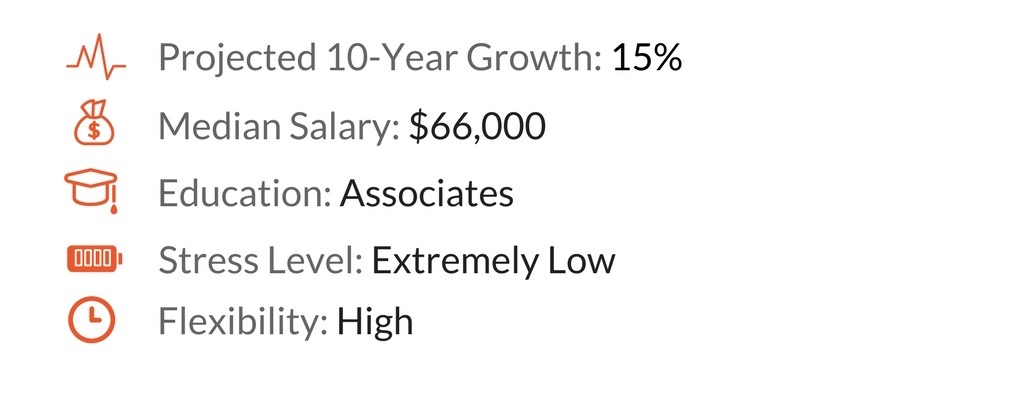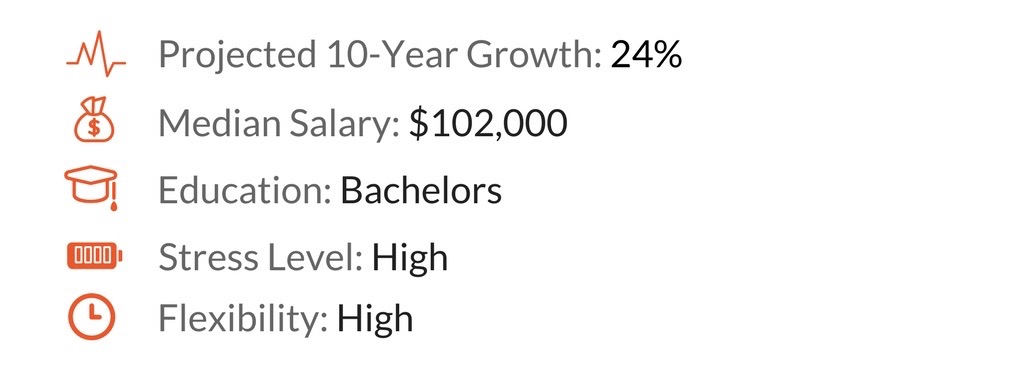The technology industry is arguably the fastest growing career choice in most developing nations. Each year companies release a new phone, software, or other gadget. Developers are the experts who help us stay up-to-date and fix those pesky bugs our phone keeps reporting.
But students often have a difficult time choosing between web, mobile or software development career paths. All three offer high income rewards and are growing faster than most career paths. We’ve collected data about benefits, future outlook, and job expectations to help students choose the path best suited for their interests and abilities.
Web Development Career Path
Web development is an umbrella term for experts who create webpages and applications. These professionals are responsible for making the Internet user-friendly. They collect and create web content, plan website layout and navigation, code the actual web pages, and test/upgrade sites for optimum performance. Students should have advanced fluency in programming languages such as HTML, JavaScript and CSS, PHP, Microsoft .Net Visual Basic, and Java.
Web developers subspecialize by earning certifications in MySQL, Microsoft SQL Server, IBM, and Oracle. Companies contract or hire web developers to optimize online content for search browsers (SEO), ensure content is compatible for multiple browsers, and create user-friendly layouts.
Web Development Outlook
Web developers can expect a high growth potential in this industry. The U.S. Bureau of Labor Statistics estimates around 130,000 jobs added with a 15 percent growth over the course of the next ten years:

Mobile And Software Development Career Path
Experts agree that mobile developers have the best employment opportunities. Internet and software users rely on their smartphones for all communication, entertainment, education, and Internet resources. Learning to develop mobile apps and optimize online content for mobile devices is a great career tool to have.
Mobile developers are a subspecialty of system software development. They build mobile operating systems, application packages, and company-specific tools. Developers constantly update these systems to function smoothly with other third-party apps, operating systems, and core systems. Flexibility and research is the cornerstone of this industry.
As computers grow and change each year, the software that these computers are built on will also change. Companies select software developers to analyze users’ needs and create software that will help consumers optimize their digital life. Software developers test and update current software packages, recommend updates, and map the crucial interactions between hardware and other software.
One critical aspect of this career path is learning to anticipate consumer needs and understand how they will use the software. This includes identifying core functionality, user requirements, and competitor’s potential solutions.
Mobile and Software Development Outlook
Software and mobile developers are ranked together and will enjoy similar benefits. The U.S. Bureau of Labor Statistics estimates the nation will add more than 300,000 jobs over the next ten years with a 24 percent annual growth.

In conclusion, if you’re considering a career change, a move to study web, mobile or software development would have multiple benefits. Statistics show that jobs in these fields are in demand and, importantly, growing. In addition, each of these fields offers a variety of career options, which translates into highly stimulating and diverse job opportunities for suitable candidates.
Hyperion was founded with an ambition to scale human-led education in programming. We believe that machines can’t match humans and learning to code is best achieved by having a coding educator review your code on a day-by-day basis. We developed our technology boot camp to help students learn to code.


